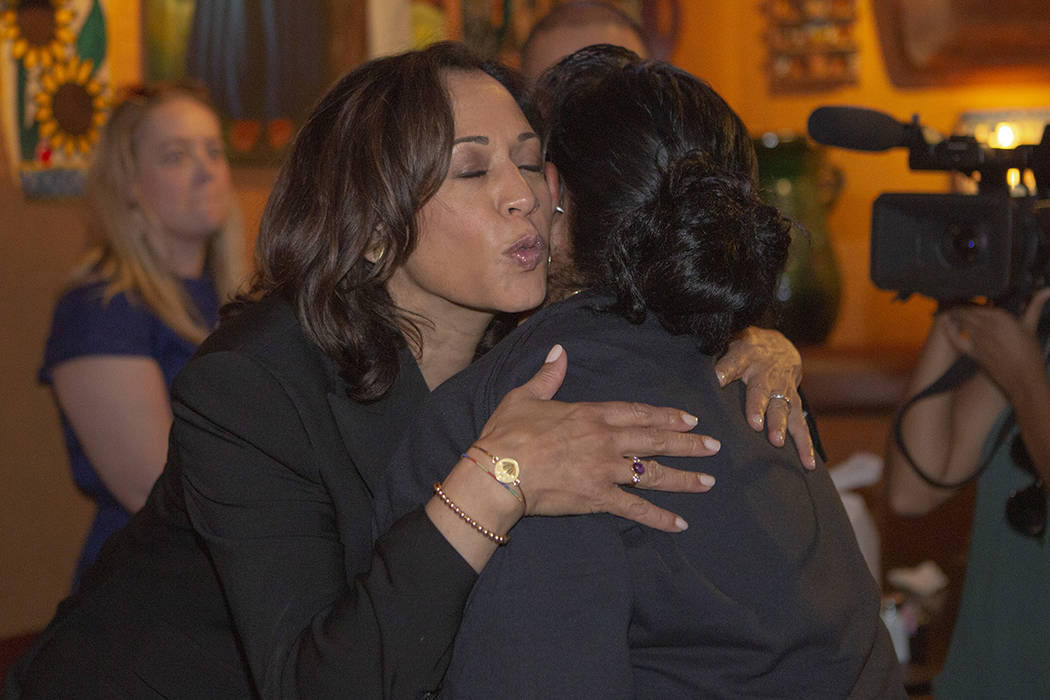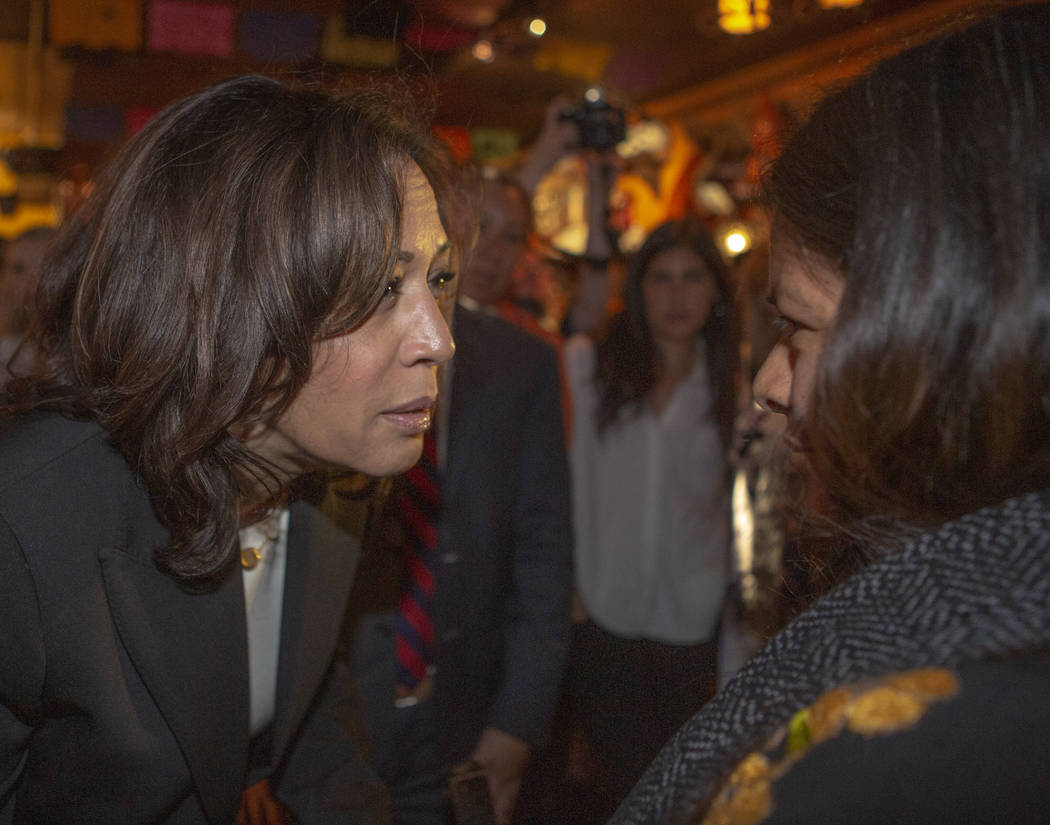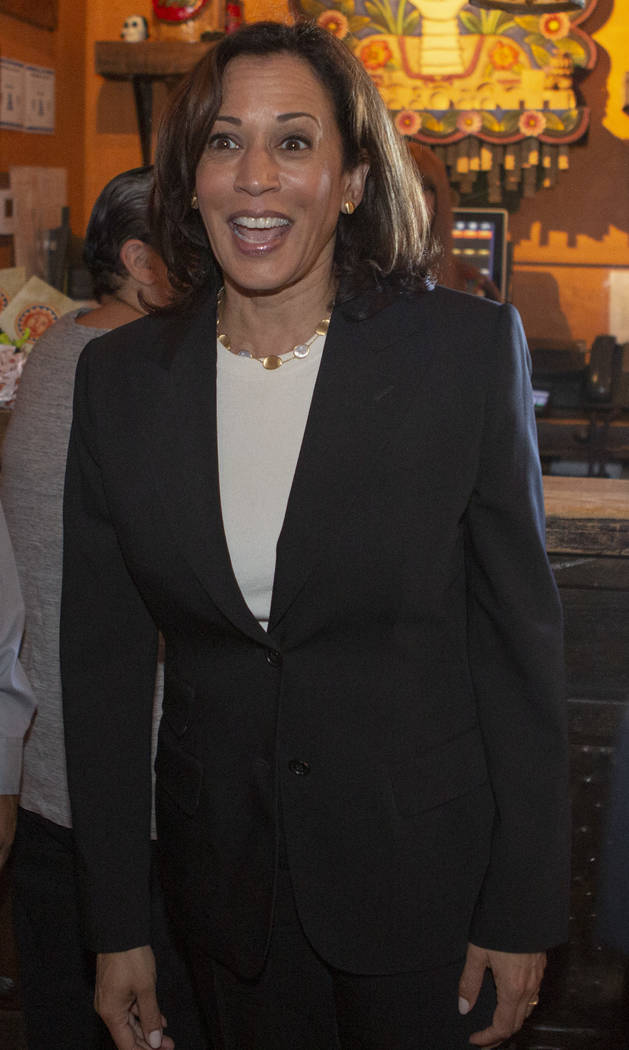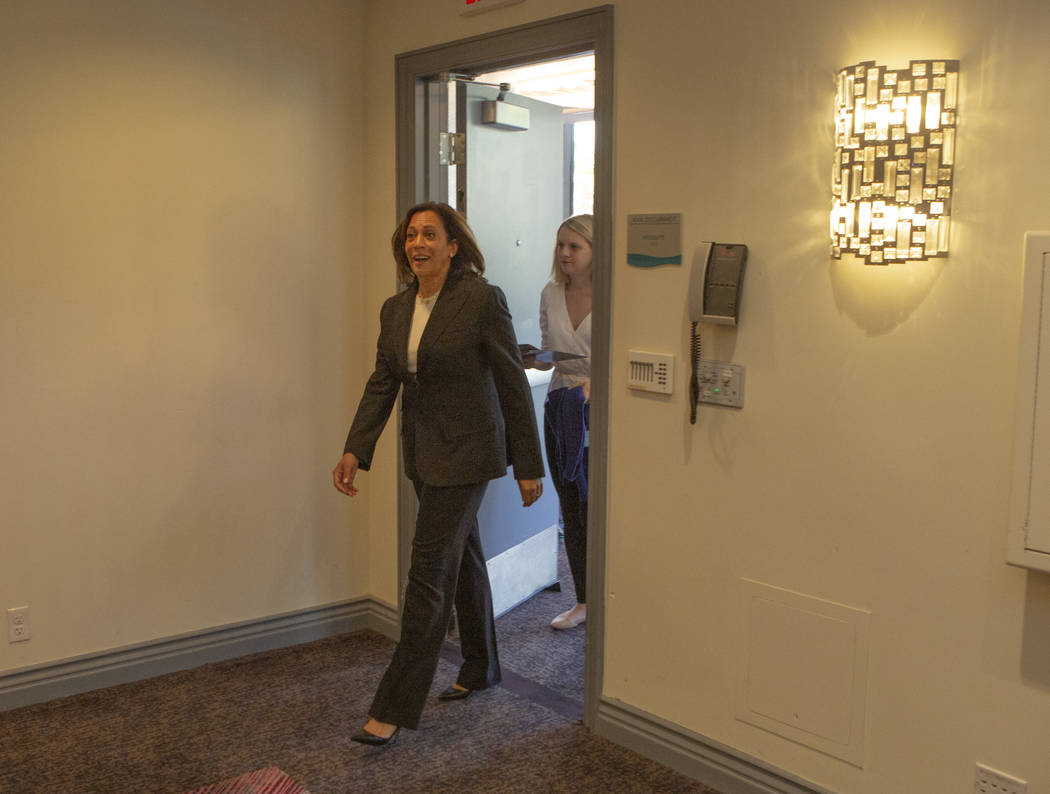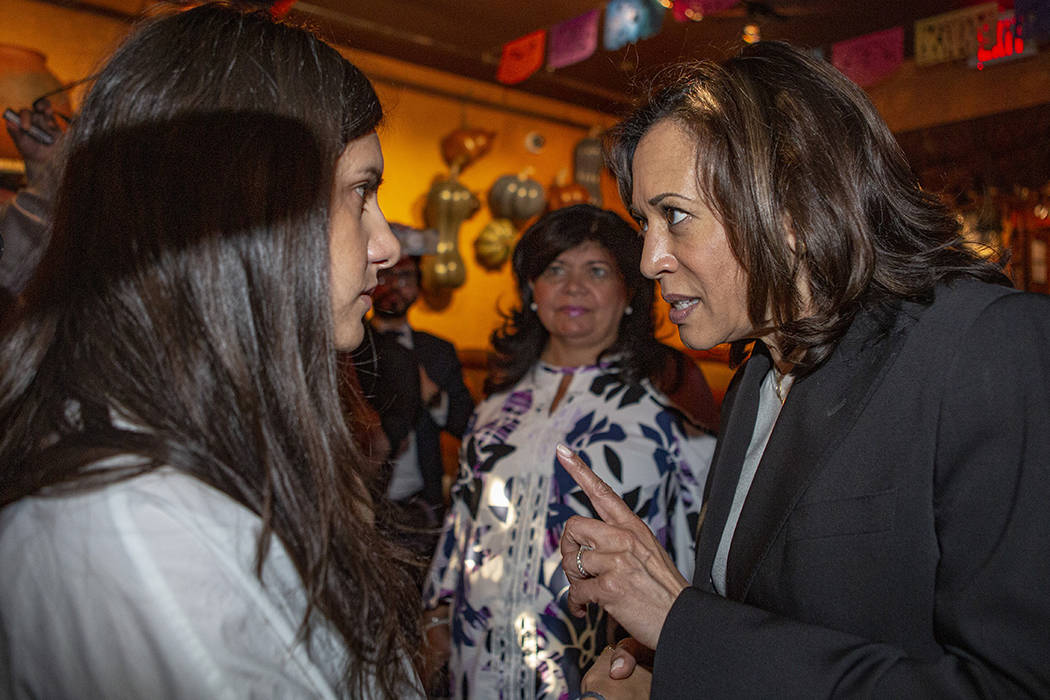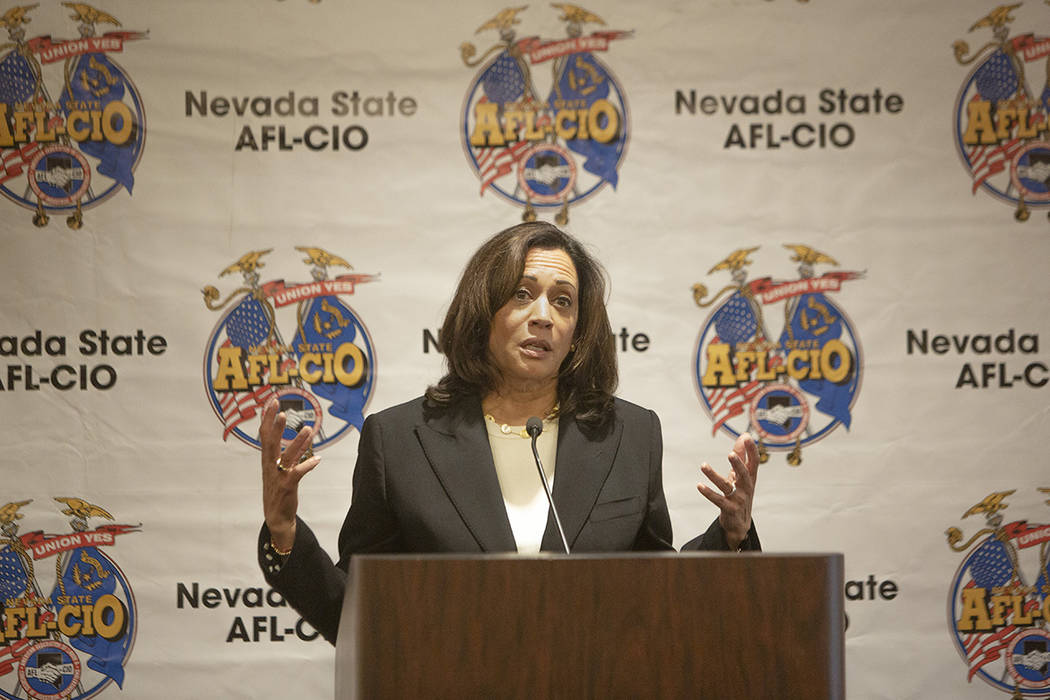Kamala Harris says Nevada inspired some of her policies
Sen. Kamala Harris is from California, and many Nevadans are quick to point out they don’t want the Silver State coming to resemble its next-door neighbor.
But the 2020 presidential hopeful said she nonetheless feels a close kinship with the state.
“Nevada is my first cousin,” Harris said with a laugh Wednesday, shortly after addressing the Nevada American Federation of Labor and Congress of Industrial Organizations’ annual convention at the Flamingo .
During an interview with the Review-Journal, Harris discussed the state’s importance and impact on her campaign, saying Nevadans inspired some of her key policy proposals. The former attorney general also delved into national issues, making her case for why her plans on health care and gun control — arguably the two most talked about political issues in America — are stronger than those of the rest of the Democratic presidential field.
Nevada as inspiration
Harris said she first came to learn of issues facing Nevadans while working with the state when she served as California’s attorney general on the foreclosure crisis during the recession. Since then, she has campaigned in the state on behalf of fellow Sen. Jacky Rosen and for her own presidential bid. She is quick to point out she has visited Carson City and Reno also, in addition to Las Vegas.
She has spent time with the state’s progressive leadership and heard from Nevada’s immigrant communities and small-business owners. Some of these conversations, she said, have led directly to her campaign’s policies and platforms.
“The teachers in Nevada were probably some of the first that really — along with some actually in Iowa, too — that helped me understand in full relief when they told their stories,” Harris said. “It’s something I hadn’t known, but they really brought a sense of clarity about the need for teacher pay and closing the teacher pay gap.”
That is why one of her first policy proposals called for the federal investment of around $315 billion over 10 years to ensuring teachers receive, on the national average, a $13,500 pay raise, Harris said.
“It is the people of Nevada who, through these conversations, really encouraged my policy around what we need to do to change the tax code so that families making less than $100,000 a year get a tax credit of up to $6,000 a year that they can take home at up to $500 a month,” Harris said.
She said the many seniors living in Nevada have told her they are rationing their medication or sometimes choosing between buying groceries or pills because of soaring prescription costs.
“All of those conversations have really reinforced my platform and my priorities,” she said.
Harris also expressed a clear disapproval for the plan to store nuclear waste at Yucca Mountain, saying she would “never allow any policy that has the federal government interfering with the sovereignty of a state on an issue like that.”
The senator acknowledged that she, as a woman of color, resonates with Nevada’s diverse communities in a different way than the historically typical white, male presidential candidate. She said she hopes her candidacy inspires people to overcome whatever limits they’re facing.
“There are parents who have brought their sons to see me for that same reason — to tell their sons that you don’t have to be limited in terms of your options or your potential or your capacity,” Harris said.
Health care
The issue of whether Democrats will embrace a single-payer, “Medicare for All” plan has dominated the first national debates and differentiated several of the candidates. But Harris said there was merely a difference of opinion among the candidates on how to reach a common goal: health care coverage for all Americans.
“But I’ll tell you, my plan is the best one,” she said with another laugh. “But seriously, actually, it is. Experts have said my plan is the best way to get everyone covered.”
Harris’ plan calls for single-payer health care with no co-pays or deductibles, but it has more private insurance options and a longer transition period than the Medicare for All legislation first championed by Sen. Bernie Sanders, I-Vt.
Gun violence
Harris, a former prosecutor, said she has hugged the mothers of people killed by guns. She has seen the autopsy photos and attended funerals for police officers.
But Harris said the country’s mass shootings — and particularly the one perpetrated on Oct. 1, 2017, just blocks from where she was sitting Wednesday – have had a very different impact on her perspective and sense of urgency regarding gun violence.
“It’s not just about a good idea,” Harris said. “ I support all the great ideas. There are a lot out there. A lot of my friends on the debate stage have great ideas. But we need action.”
If elected, Harris said she plans to immediately — though executive action if necessary — require comprehensive background checks and divert resources to the Bureau of Alcohol, Tobacco, Firearms and Explosives to take the licenses of gun dealers who refuse to comply. And she would impose a ban on the import of assault weapons into the United States.
“We need action, and I plan to be a president who takes action, not just gives a lovely speech,” Harris said.
Contact Rory Appleton at rappleton@reviewjournal.com or 702-383-0276. Follow @RoryDoesPhonics on Twitter.



